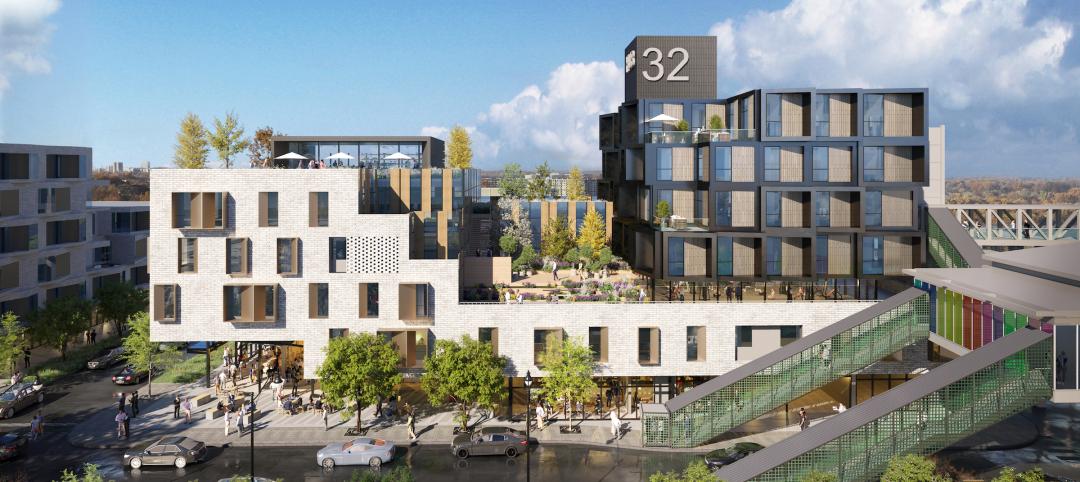The National Council of Architectural Registration Boards (NCARB) has voted to approve significant changes that will streamline and overhaul the Intern Development Program (IDP), which most states require to satisfy experience requirements for initial licensure as an architect. The changes will only be applicable where adoption has occurred by individual jurisdictional licensing boards.
The changes will be implemented in two phases. The first will streamline the program by focusing on the IDP’s core requirements and removing its elective requirements. The second phase will condense the 17 current experience areas into six practice-based categories that will also correspond with the divisions tested in the Architect Registration Examination® (ARE®).
NCARB announced the proposals to modify the IDP in late June at its Annual Business Meeting, which was attended by representatives of its 54 member jurisdiction boards that oversee architect licensing in their states or territories. After reviewing the feedback from the boards, the Board of Directors voted to move forward with both proposals for implementation in mid-2015 and mid-2016.
“Streamlining of the IDP requirements will reduce complexities while ensuring that intern architects still acquire the comprehensive experience that is essential for competent practice, and result in a program that is both justifiable and defensible,” said NCARB President Dale McKinney, FAIA.
Phase 1: Focusing on Core Requirements
The IDP currently requires interns to document 5,600 hours of experience, with 3,740 of those hours as core requirements in specific architectural experience areas. The remaining 1,860 hours are elective hours. The first reinvention phase will streamline the IDP by removing the elective hour requirement, with interns documenting only the 3,740 hours in the 17 core experience areas.
In making its decision to eliminate the elective hours, the Board considered several important statistics:
· The average intern currently takes five years to complete the hours required for IDP and another 2.2 years to complete the ARE, totaling an average of more than seven years from graduation to licensure.
· With this reduction in required IDP hours, it is likely that the average intern will take roughly three to four years to complete their IDP requirements following this change.
· Combined with the time required to complete the ARE, the Board anticipates that the average intern will have five to six years of post-graduation experience prior to qualifying for initial licensure.
Implementation and Jurisdictional Adoption
NCARB expects to implement the first phase on or before June 2015. Many states will need to formally adopt the streamlined program because of how experience requirements for licensure are written in their laws or rules.
“Our planning efforts will include development of a campaign to inform interns of the importance of understanding the variables in jurisdictional laws and rules related to the experience requirement when considering where they will apply for licensure,” McKinney said.
Phase 2: Aligning Internship and Examination
The Board also agreed to a future realignment of the framework of IDP requirements into six experience categories reflecting the six general areas of practice, which were identified by the 2012 NCARB Practice Analysis of Architecture. These changes will mirror the six divisions of a future version of the licensing exam, known as ARE 5.0.
NCARB’s internship-related committees will provide guidance on mapping the existing requirements into the new, overhauled format. This work should be completed and ready for introduction in mid-2016, before the launch of ARE 5.0 in late 2016.
To learn more, NCARB recommends that interns, architects, and other stakeholders visit the NCARB website, blog, and frequently-asked-questions web pages for information as the IDP implementation plan develops.
Related Stories
Building Team | Mar 8, 2023
Call for Speakers: BD+C’s 2023 Women in Residential + Commercial Construction Conference
The 2023 Women in Residential + Commercial Construction conference event will take place October 25-27 in Nashville, Tenn., and will bring together more than 300 women leaders from all facets of the $1.4 trillion U.S. residential and commercial constructing sector.
Reconstruction & Renovation | Mar 8, 2023
Hoffmann Architects + Engineers receives Lucy G. Moses Preservation Award from New York Landmarks Conservancy
Hoffmann Architects + Engineers, a design firm specializing in the rehabilitation of building exteriors, announces that the historic facade rehabilitation and window replacement at the 69th Regiment Armory has been selected for the Lucy G. Moses Preservation Award, the New York Landmarks Conservancy’s prestigious recognition for outstanding preservation efforts.
Architects | Mar 7, 2023
David Chipperfield named 2023 Pritzker Architecture Prize laureate
Widely regarded as architecture's highest honor, the 2023 Pritzker Architecture Prize has been awarded to UK-based architect David Chipperfield. In honoring Chipperfield with the award, the Pritzker Prize jury cited the architect's "commitment to an architecture of understated but transformative civic presence and the definition—even through private commissions—of the public realm."
Multifamily Housing | Mar 7, 2023
Multifamily housing development in Chicago takes design inspiration from patchwork and quilting
HUB 32, a 65-unit multifamily housing development, will provide affordable housing and community amenities in Chicago’s Garfield Park neighborhood. Brooks + Scarpa’s recently unveiled design takes inspiration from the American tradition of patchwork and quilting.
Industrial Facilities | Mar 6, 2023
The largest planned logistics and business park in North America gets under way in Southern California
The $25 billion World Logistics Center will boost the supply chain capabilities of Southern California and will serve as a distribution center for destinations across the continent.
Healthcare Facilities | Mar 6, 2023
NBBJ kicks off new design podcast with discussion on behavioral health facilities
During the second week of November, the architecture firm NBBJ launched a podcast series called Uplift, that focuses on the transformative power of design. Its first 30-minute episode homed in on designing for behavioral healthcare facilities, a hot topic given the increasing number of new construction and renovation projects in this subsector.
K-12 Schools | Mar 6, 2023
Benefitting kids through human-centric high school design
Ingrid Krueger, AIA, LEED AP, shares why empathetic, well-designed spaces are critical in high schools.
Adaptive Reuse | Mar 5, 2023
Pittsburgh offers funds for office-to-residential conversions
The City of Pittsburgh’s redevelopment agency is accepting applications for funding from developers on projects to convert office buildings into affordable housing. The city’s goals are to improve downtown vitality, make better use of underutilized and vacant commercial office space, and alleviate a housing shortage.
Student Housing | Mar 5, 2023
Calif. governor Gavin Newsom seeks to reform environmental law used to block student housing
California Gov. Gavin Newsom wants to reform a landmark state environmental law that he says was weaponized by wealthy homeowners to block badly needed housing for students at the University of California, Berkeley.
Green Renovation | Mar 5, 2023
Dept. of Energy offers $22 million for energy efficiency and building electrification upgrades
The Buildings Upgrade Prize (Buildings UP) sponsored by the U.S. Department of Energy is offering more than $22 million in cash prizes and technical assistance to teams across America. Prize recipients will be selected based on their ideas to accelerate widespread, equitable energy efficiency and building electrification upgrades.

















